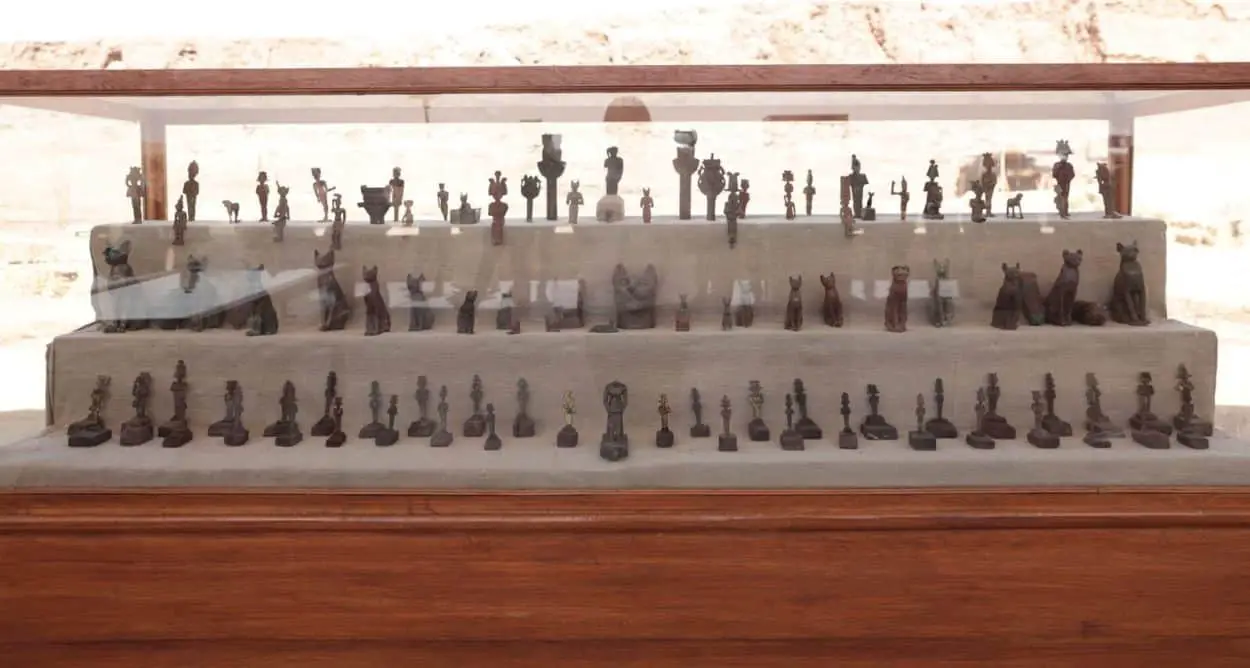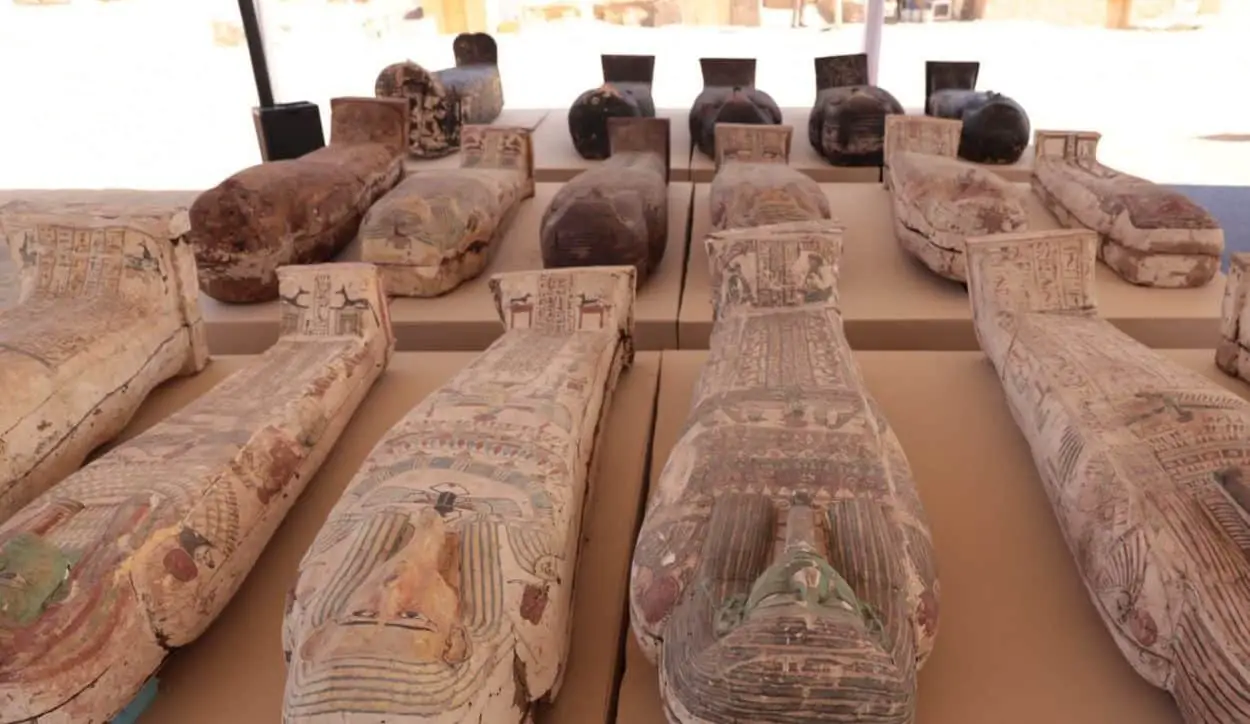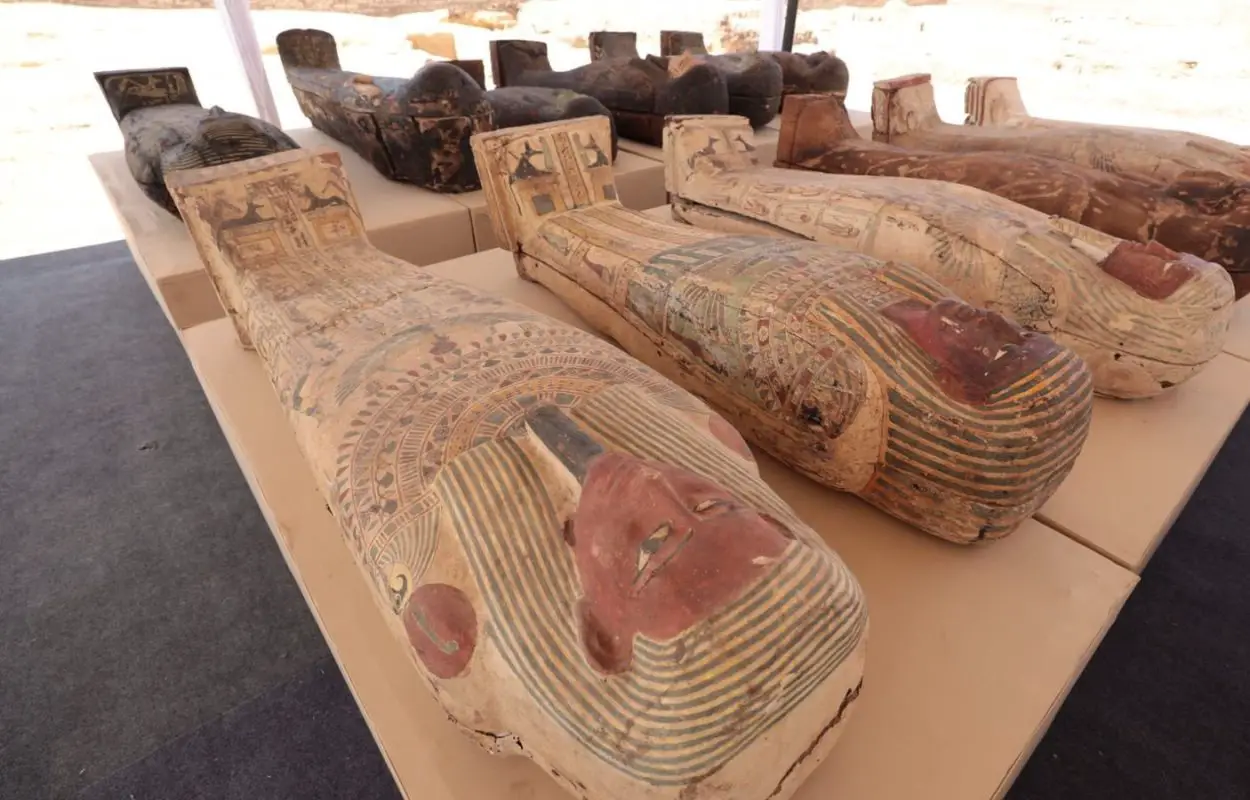Archaeologists from the Saqqara Archaeological Mission have revealed a large cache of bronze statues and sarcophagi discovered at the Saqqara Necropolis, Egypt.
Excavations have been ongoing since 2018, where previously the team discovered 100 wooden coffins back in 2020.
In the 2022 season, archaeologists unearthed 150 bronze statues depicting Ancient Egyptian idols such as: Anubis, Osiris, Isis, Hathor, Min and Bastet, in addition to several items used for ritual activities. One such item is a sistrum, an Ancient Egyptian percussion instrument used in dances and religious ceremonies, particularly in the worship of the goddess Hathor.

The mission also found two coloured wooden statues of the goddesses Isis and Nephthys posed as mourners, and a burial well from around 1500 BC with adornments such as: necklaces, bracelets, earrings and even a bronze mirror.
Excavations identified a series of burial wells, in which coloured wooden sarcophagi from the Late Period of Egypt (525-332 BC) were recovered. The sarcophagi appear to have remained undisturbed by tomb robbers and still contain burials and various ornaments.

The team found a piece of papyrus within one sarcophagus that may be from the book of the dead, an ancient Egyptian funerary text consisting of magic spells intended to assist a dead person’s journey through the Duat, or underworld, and into the afterlife. The text has been transferred to the Egyptian Museum in Tahri for preservation and a translation of the hieroglyphics.
Ministry of Tourism and Antiquities





